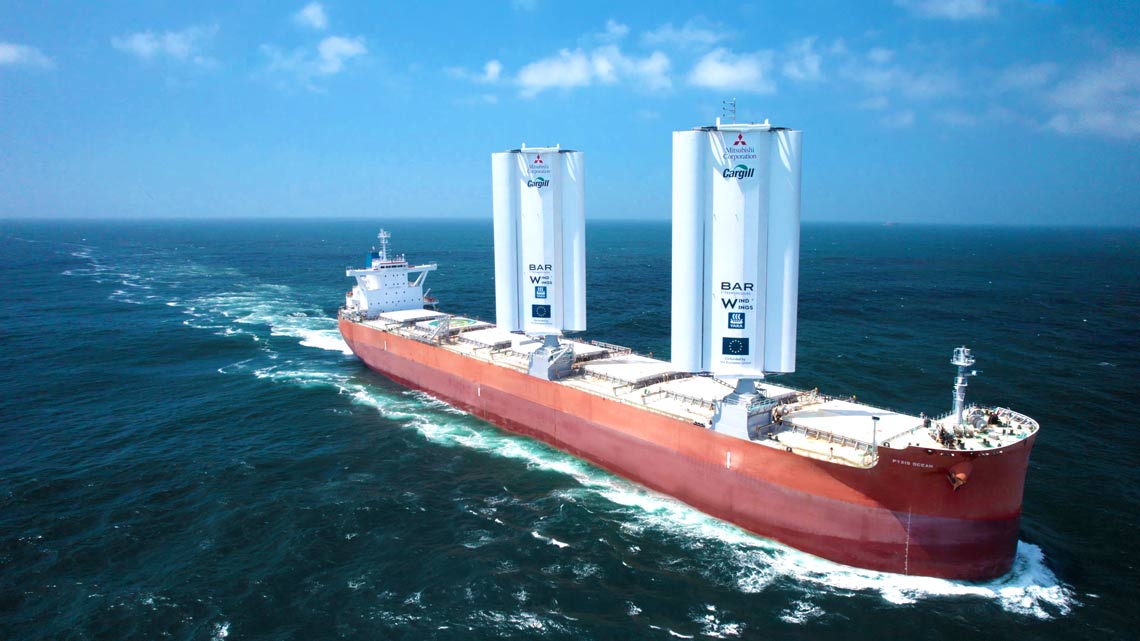
A vessel powered by ‘ground-breaking’ technology has set sail from China to Brazil today (21 August) with its developers hoping this journey could showcase an important development for the future of green and sustainable international trade.
The Pyxis Ocean, a 230-metre cargo vessel owned by Mitsubishi Corporation, will travel the oceans partly powered by newly installed ‘WindWings’ technology that harnesses the power of the wind.
WindWings are large, metal sails up to 37.5m in length that sit on the platform of ships and generate power from the wind, in a throwback to the previous ‘golden age’ of sailing.
Fuel saver
Pyxis Ocean will still use traditional power sources, but it is hoped that WindWings could save at least 30% of fuel when compared to new-build vessels that don’t use the technology.
Cargill claim that each wing will result in daily savings of 1.5 tonnes of fuel and 4.65 tonnes of carbon emissions, cutting the both costs of fuel and the environmental impact of shipping on every journey.
The fact the metal sails can be installed on existing ships will mean that existing vessels do not need to be scrapped, therefore keeping the costs of decarbonisation down across the maritime industry.
‘Phenomenal’ reduction
Andy Bridges, trade and customs specialist at the Institute of Export & International Trade (IOE&IT) academy, said that such a saving would be a “phenomenal total” if it was achieved.
“The future of the decarbonisation of both trade and international shipping will be reliant on technology like this. Cargo ships that carry goods across sea use a lot of dirty fuels every day, so any new methods to reduce the fuel these vessels use will be important.
“A 30% carbon savings could be significant and this could improve over time as more companies get involved in research and development.”
Last month, both the EU and the International Maritime Organization (IMO) released new strategies aimed at decarbonising the industry, which focused heavily on fuels.
There has also been pressure from several governments and environmental groups to impose a ‘carbon levy’ on shippers for emissions generated from vessels.
Joint partnership
The technology has been jointly developed by UK engineering firm BAR Technologies, Yara Marine Technologies and global commodity trader Cargill, the latter of which has chartered the Pyxis Ocean for its journey. The project also received funding from the EU Horizons project.
John Cooper, BAR Technologies CEO said:
“If international shipping is to achieve its ambition of reducing carbon dioxide emissions, then innovation must come to the fore.
“Wind is a near marginal cost-free fuel and the opportunity for reducing emissions, alongside significant efficiency gains in vessel operating costs, is substantial.”
Jan Dieleman, president of Cargill’s ocean transportation business said the move was a “game changer” for decarbonising the maritime industry.



